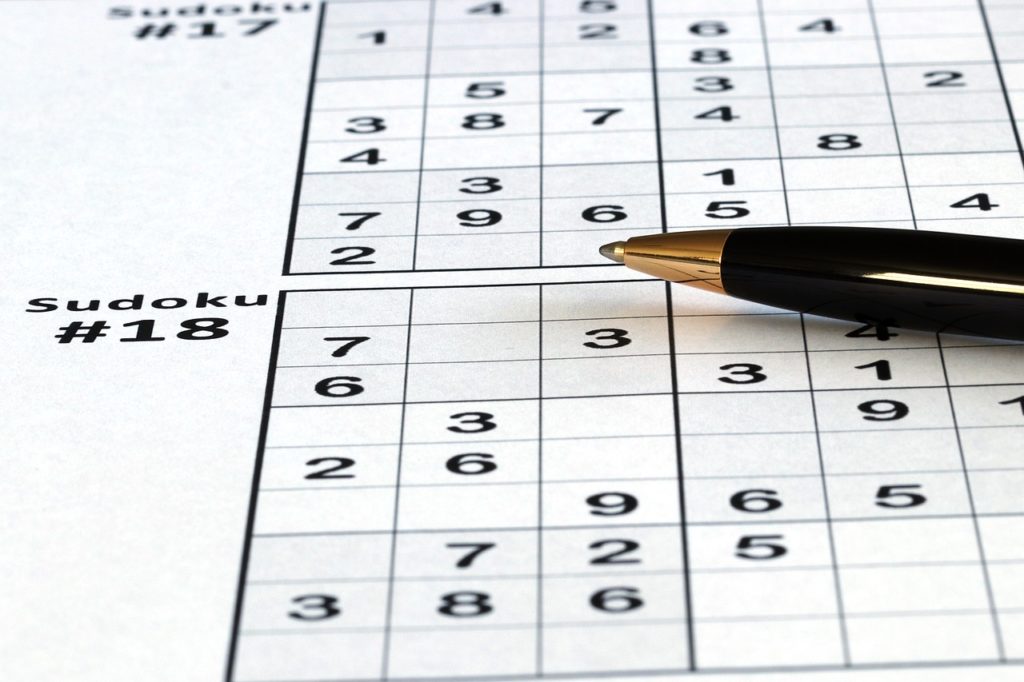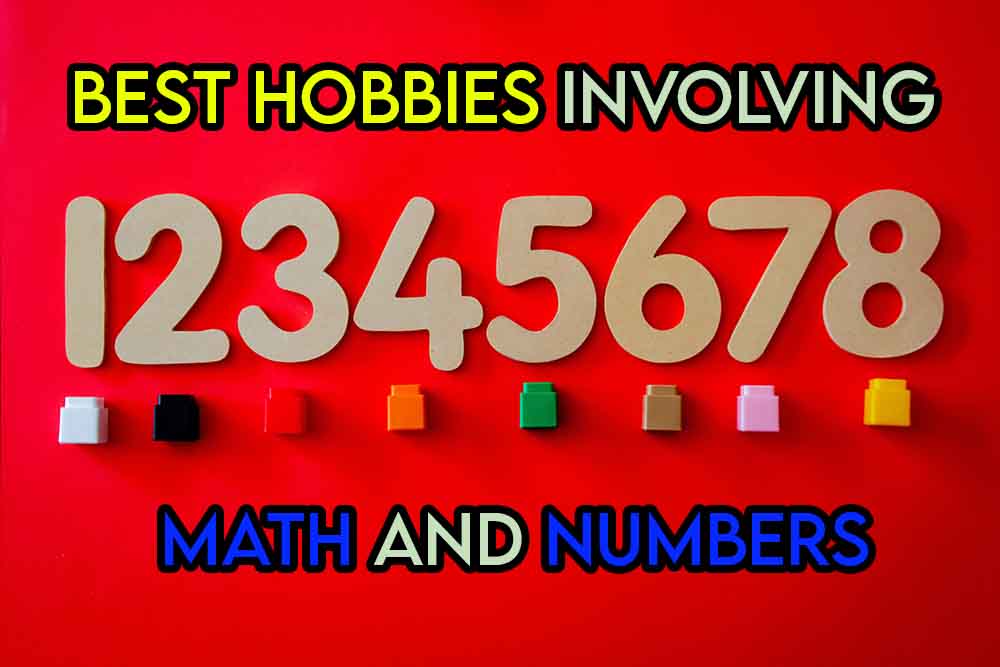Math and numbers can be found in a variety of hobbies, from puzzles and games to sports and crafts. Here are 12 hobbies that involve math and numbers:
1. Sudoku
This popular number puzzle requires players to fill in a grid with numbers such that each row, column, and 3×3 box contains all of the digits from 1 to 9. Sudoku requires logical thinking and the ability to spot patterns and make deductions.

2. Cryptography
Cryptography is the study of codes and ciphers, and it involves using math to encrypt and decrypt messages. Cryptography has a long history, dating back to ancient civilizations, and it continues to be a fascinating hobby for many people.
3. Jigsaw Puzzles
Jigsaw puzzles are a classic pastime that involves fitting pieces together to form a complete picture. Some puzzles, such as those with geometric shapes or patterns, require mathematical skills such as spatial reasoning and problem-solving.
- ⭐ EXCEPTIONAL GIFT FOR YOUR LOVED ONES These unique jigsaw puzzles are an offbeat gift! Each is packed in a premium wooden...
4. Model Building
Model building, whether it be with LEGO bricks or other materials, involves using math to measure, calculate, and construct structures. This hobby can be both fun and educational, as it allows individuals to put their math skills to the test while creating something tangible.
5. Chess
Chess is a strategy game that involves mathematical thinking and planning. Players must use logic and critical thinking to anticipate their opponent’s moves and outmaneuver them.
- ♕ INLAID WALNUT CHESS BOARD: The compact 15" x 15" chess board is made of smooth inlaid walnut, where every square measures...
6. Knitting and Crochet
These popular crafts require the use of mathematical concepts such as pattern recognition and counting to create beautiful and functional items. Knitting and crochet patterns often include detailed instructions and diagrams that involve math. To get started as a beginner knitter, start with a comprehensive beginner knitter’s guide.
7. Cooking
Cooking involves the use of math to measure ingredients, calculate cooking times, and adjust recipes. Many recipes include mathematical conversions, such as converting teaspoons to tablespoons or cups to ounces.
8. Sports
Many sports, such as baseball, basketball, and soccer, involve the use of math. For example, baseball statistics such as batting averages and earned run averages require mathematical calculations, and basketball and soccer players must use math (intuitive) to calculate the best angles and distances for shots and passes.
9. Music
Music involves the use of math in several ways. For example, rhythm and tempo are based on mathematical concepts such as fractions and ratios. Additionally, the study of music theory often involves the use of math to understand and analyze musical structures and patterns.
- [Best Partner for Travel] - Donner HUSH portable guitar is as lightweight as a laptop with a HEADLESS design, button tuners,...
10. Astronomy
Astronomy is the study of the universe, and it involves the use of math to calculate the positions, movements, and properties of celestial objects. Amateur astronomers often use math to plan their observations and make predictions about celestial events.
11. Traditional Gaming
Traditional games such as blackjack, poker, and craps involve the use of math to calculate probabilities and make strategic decisions. Some gamblers even use mathematical systems and algorithms to try to gain an edge over the house.
Popular Questions About Maths-Based Hobbies
Am I good enough to do a math-based hobby?
Being good at math isn’t always the most important factor when it comes to picking up a math-based hobby.
Having a burning enthusiasm for something will always end up being the most important factor in whether you will succeed in your endeavors.
Math can start with the most basic things such as adding up all the way to more complex equations.
Hobbies that involve math usually have basic starting areas meaning you can slowly build your way up as you grow more confident.
How can I increase my understanding of math and numbers?
Increasing your understanding of math and numbers can be a challenging but rewarding task. Here are a few tips to help you improve your understanding of these important subjects:
- Start with the basics: Make sure you have a solid foundation in the basic principles of math and numbers. If you find yourself struggling with more advanced concepts, it may be helpful to review the basics and make sure you fully understand them before moving on.
- Practice, practice, practice: One of the best ways to improve your understanding of math and numbers is to practice working with them on a regular basis. This can help you develop a better intuition for how these concepts work and can help you retain the information you learn.
- Work on problems that challenge you: Don’t be afraid to tackle problems that are outside of your comfort zone. This will help you stretch your skills and improve your understanding of the subject.
- Seek out additional resources: There are many resources available to help you increase your understanding of math and numbers, including books, websites, and online tutorials. Take advantage of these resources to supplement your learning and help you understand the concepts better.
- Ask for help when you need it: If you’re having trouble understanding a concept, don’t be afraid to ask for help. This can be from a teacher, tutor, or even a friend who is better at math and numbers than you are. Asking for help can be an important step in improving your understanding of these subjects.
By following these tips, you can work to improve your understanding of math and numbers and become more confident in your ability to work with these important concepts.
Conclusion
In conclusion, math and numbers are present in many different hobbies, from puzzles and games to crafts and sports. These hobbies offer individuals a fun and engaging way to exercise their math skills and broaden their understanding of mathematical concepts.
If you enjoyed our article, please bookmark our homepage and share this post on social media with your friends.









